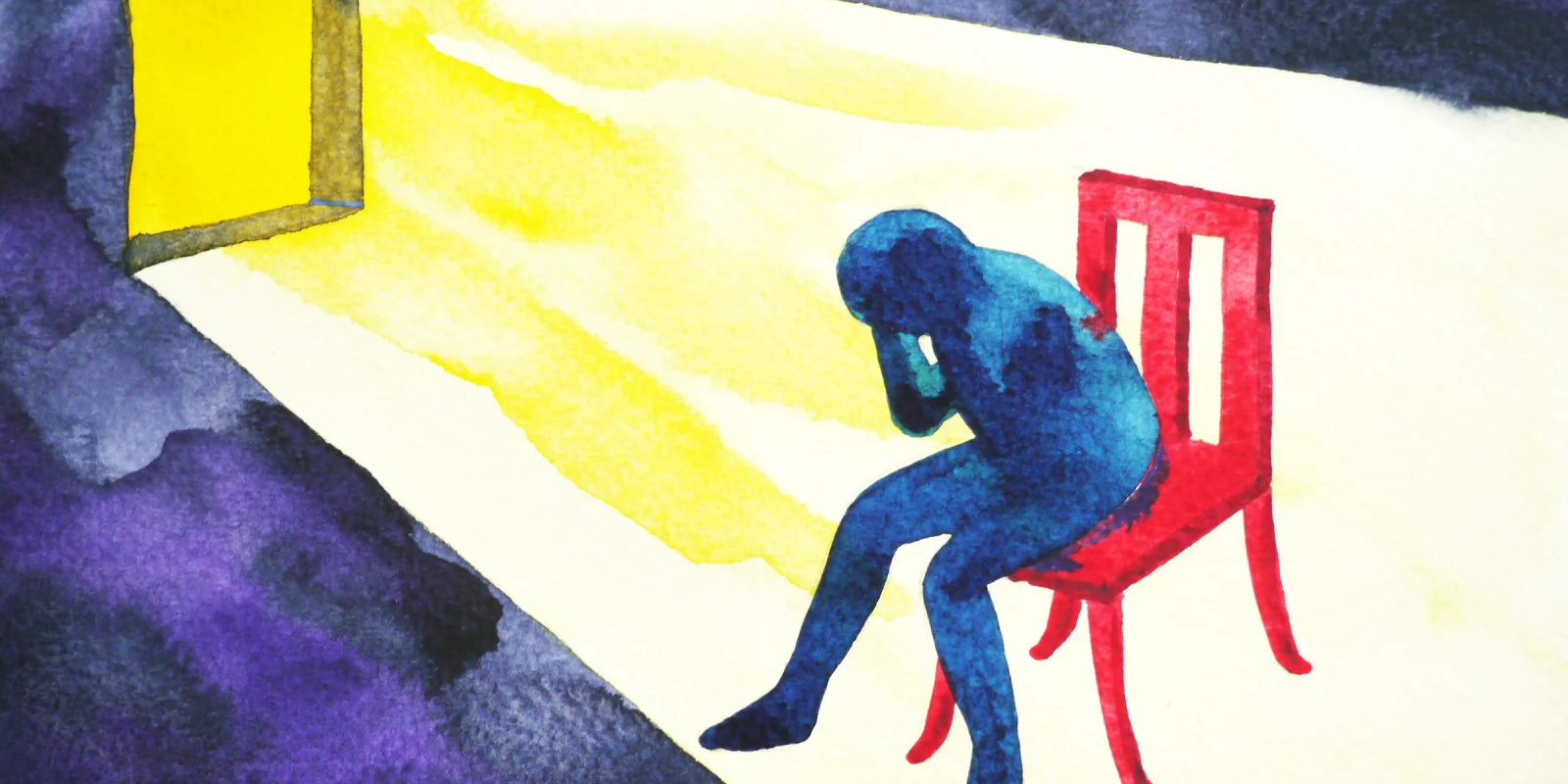“I didn’t do this to myself, I want you to know that.”
A slight pallor cast over an otherwise healthy looking woman, laid out as neatly as the various IVs, leads, and all-too-familiar catheter alongside her. The nurses were tending to the large fishbowl colostomy bag that sloshed gently as we spoke. I replied, “I understand.” I didn’t. I was trying to, but really, I didn’t.
It had been nearly six months to the day since I started my training in psychiatry. This was not my first encounter with a colostomy bag, a suicidal patient, a terminal patient, or even an interview conducted amongst an uncountable mass of lines, bags, drips, and bustle that accompanies the maintenance of such things. Somehow, this one was different. Maybe it was the simple fact that this was all of those things at once, maybe it was because I had already spent the last 10 hours coming off of a shift for this consult, or maybe I just didn’t believe her. But as she talked and talked, then cried, then sighed, then laughed, then drifted in and out, I couldn’t help but think, I don’t think there’s anything I can do for you, lady. I don’t think there’s anything anyone can do.
I didn’t like that thought. It made me feel disgusting. I felt it in my bones. I am a terrible person. I am a terrible doctor. I am uncaring, irredeemable scum. How could I even enterta--
“I don’t want to hurt myself, or even kill myself. I just don’t know how I can go on living like this,” she gestured to the now-empty colostomy bag. “I can’t even eat what I like, my husband is in jail, my family is…”
I nodded. She had been raised in foster care, she had recently moved from Arizona, she had no friends, no family, an abusive husband, and a history of self-harm, suicidal behaviors, and multiple psychiatric problems. The cards were undeniably stacked against her.
I don’t think there’s anything I can do for you, I thought, and paused. I am scum. I nodded. I am a doctor. I sighed. This is the job I signed up for. I wanted this, I fought for this, I have this. She has nothing, she is desperate, she is hurting. She is losing her fight. I nodded again. She needs you to fight for her.
Do your job. Fight for her.
Friendly public service announcement for any young, aspiring docs out there: This is the job. The practice of medicine is the practice of preservation, of a domain of life that reaches deep and ranges wide, to the limits of what many of our definitions of life often do not explore or even attempt to capture. I still remember the occasional overwhelming awe that I would have when learning about the innate mechanisms of the body that would activate in cases of trauma, starvation, fatigue — in a word, stress — that would push the body to its literal breaking point just to eke out one or two more seconds of life in the hope of staying alive. But this awe would end when I was abruptly pulled back to practicality by my preceptors and professors reminding us that “a big part of your job is to make sure that never happens, and that if it does that you know what to do.” That includes moments and patients like these. She had practically none of what we call “protective factors” that mitigate the risk of suicide, had undergone multiple surgeries, which left her with less than 10% of her small bowel, and had a litany of social, behavioral, and psychological problems. She was at the end of her proverbial rope, even as she was being prepared for discharge. There was not much life waiting for her out there or here in the hospital. But it was my job to see through all that. Not necessarily to see past it, but truly through it, to see that there was a path to hope, to life, to give her just a marginally better grip on that rope while the stress of this life came crashing, crushing, crumbling down around her. This is the job. That, and the paperwork that comes along with it, too.
I’m happy to report that she did start to feel better, less desperate; one of the phrases I often find myself parroting to patients like these is to be “hopeful about being hopeful,” and that’s a start. It’s a small win, but I often remind myself that small wins are still wins, every bit of hope we can give our patients is still hope, and there is always more light to be found, as long as we can help them make it to the end of that tunnel.
Have you had any thoughts that made you feel like a bad doctor? Share your experiences in the comments.
Tim Hsu, MD is a big ball of yarn. He spends most of his time being batted around by his cat. In his free time he reads, plays video games, and occasionally gets some work done. You know, just a typical psychiatry resident. He is a 2020–2021 Doximity Op-Med Fellow. All names and identifying information have been modified to protect patient privacy.







